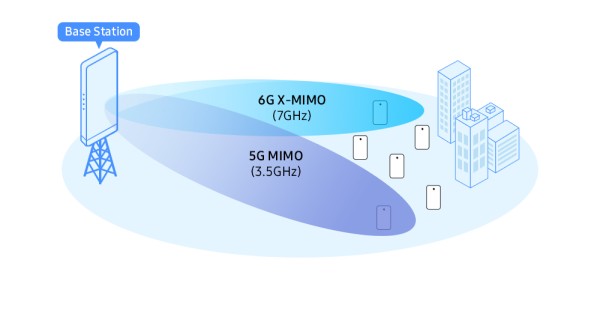Singtel announced that it is one of the world’s first to have 5G Security-as-a-Slice (SecaaS) as a capability, which proactively identifies and blocks cyber threats at the network level, thus preventing them from reaching the network’s users.
With the high level of mobile phone penetration in Singapore and the rapid pace of digitalization among consumers and businesses, the attack surface for cybercriminals and cyber attackers has enlarged exponentially. However, many users are not taking the necessary measures to protect themselves. According to a survey by Singtel among its customers in December 2022, nine out of 10 users expressed concern about security but only three had installed cybersecurity applications to protect their digital assets.
Anna Yip, Chief Executive Officer, Consumer Singapore, Singtel, said, “Everybody wants the peace of mind to enjoy the best digital experiences without having to worry about cyber threats. With SecaaS, we have taken security to the next level so that our customers can take advantage of the ultra-fast download speeds, high bandwidth and ultra-low latency of 5G while being protected from ever-evolving and increasingly sophisticated cyber threats.”
By combining Singtel’s leadership in 5G innovation and Palo Alto Networks expertise in 5G-native security, Machine Learning-Powered Next-Generation Firewalls (ML-Powered NGFW), and cloud-based cybersecurity products, Singtel are now able to offer customized, highly secure 5G virtual networks or “slices.” Cyber threats such as viruses, malware, spyware, phishing links, and malicious websites will be proactively identified and blocked in real-time at the network level, preventing them from getting to users’ mobile devices.
This means that the network’s users have some protections in place even if they have not installed any security applications. This also minimizes the impact on the user’s mobile experience and device battery life. In addition, a network-based security solution can protect all types of 5G network devices, including Internet of Things (IoT) devices, regardless of whether the platforms or operating systems are supported by device-based cybersecurity applications. Real-time security updates performed at the network level will also be able to provide protection against emerging threats without users’ intervention. Singtel will roll out its SecaaS service, for consumers and enterprises, in the coming months. More details can be found in Annex A.
“Sophisticated and evasive cyber attacks are on the rise as we see cybercriminals intensifying their efforts against people and organizations. While it is amazing to see the excitement around adopting 5G, the security of this technology must be constantly enhanced as it can be an enticing attack vector for bad actors. Users deserve comprehensive AI/ML-powered security that protects against highly evasive threats in order to have full confidence in their 5G solution. We are proud to collaborate with Singtel to help them build their SecaaS capability and unlock the full potential of 5G for their customers,” said Anand Oswal, senior vice president, Network Security at Palo Alto Networks.
SecaaS will be made commercially available in the coming months, beginning with Singtel’s 5G mobile subscribers.
For more information on Singtel’s network security measures and services, visit Singtel Secure.
Annex A
To deliver high levels of security, the SecaaS service takes advantage of a number of Palo Alto Networks products that harness deep learning – a subset of traditional machine learning that uses multi-layer artificial neural networks to analyse data the way a human would.
The key technologies found in the SecaaS service include the following products:
- Palo Alto Networks 5G-Native security which delivers granular security for highly-distributed, cloud-native 5G networks, and includes real-time correlation of threats to 5G users and their device identifiers and 5G network slice security.
- Advanced Threat Prevention – An Intrusion Prevention System (IPS) with an inline deep learning cloud engine to detect and prevent evasive Command & Control (C2) tactics and techniques in real-time. Advanced Threat Prevention analyses suspicious network sessions to provide a near real-time verdict on unknown C2 traffic and block the session inline.
- Advanced URL Filtering which helps prevent new, highly evasive phishing attacks, ransomware and other web-based attacks through deep learning-powered analysis of web traffic live web content – in real time and inline.
- DNS Security that helps prevent the latest DNS-based attack techniques, including strategically aged domains.
- Advanced WildFire which uses intelligent run-time memory analysis combined with stealthy observation and automated unpacking to stay hidden from malware and defeat advanced evasions. This enables Advanced WildFire to stop more highly evasive zero-day malware than traditional sandboxes.
























